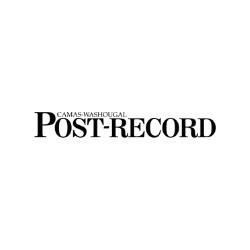It is not surprising that COVID-19, which ravaged the world, was disastrous for our country’s economy. Millions died from COVID complications; offices, stores and factories closed; and people were forced to quarantine at home.
The good news this Labor Day is COVID-19 vaccines are working and readily available. As a result, our job market has dramatically improved. People are eating out, shopping and traveling. Our economy is healing.
Vaccines were developed and deployed at “warp speed” under President Donald Trump. Having Americans inoculated as quickly as possible is one of the few things for which presidents Trump and Joe Biden jointly deserve credit. It is not a political football to be tossed back and forth. Proven vaccines are in everyone’s best interest.
Shots in arms started en masse as Biden took office. His administration rightly accelerated the pace. As a result, our unemployment rate dropped from almost 15 percent during the pandemic peak in April 2000 to 5.4 percent in mid-August 2021.
The progress continues. Wallethub.com reported much better job growth in July, exceeding researchers’ expectations.
“The overall drop (in unemployment) can be attributed to a combination of vaccinations and states loosening restrictions,” Wallethub reported, crediting vaccinations for the resurgence in people working.
Now, just over half of all Americans are fully vaccinated and about 60 percent have received one shot; however, the vaccination rate needs to accelerate. The overwhelming number of patients with COVID in our overcrowded hospitals are unvaccinated.
The good news is nearly 60 percent of all Washingtonians are completely immunized and two-thirds have received one injection. Lack of vaccines is not an issue. Our state’s population is 7.8 million — 10.5 million shots have been delivered and 9.4 million have been administered.
Vaccinations are reflected in jobs numbers. Wallethub.com data shows three Washington cities rank among the cities “bouncing back most.” Spokane is rated the 16th best, followed by Vancouver (27th) and Tacoma (32nd).
To keep the economy moving, job vacancies need to be filled. The number of unfilled jobs soared to nearly 15 million by mid-March. April data from online job site ZipRecruiter found discouraged, hesitant and fearful job seekers translates into many positions remaining vacant. Vaccinations go a long way to alleviating fear.
In May, the Labor Department jobs numbers were disappointing. The total nonfarm payroll employment rose by 266,000 in April, which was far below the 1 million expected by economists polled by Dow Jones.
With millions of employers looking for workers, the emphasis is shifting to encourage people to seek work. Employers nationwide say the enhanced federal unemployment benefits added to workers’ reticence to fill the millions of open positions. (Editor’s note: Three COVID-era unemployment benefits afforded by the CARES Act, including the enhanced $300 a week benefit, expire Sept. 6.)
The U.S. Chamber of Commerce believes paying people not to work is dampening what should be a stronger jobs market. As a remedy, some states, such as Montana, are rejecting the added $300 payment to unemployment checks. Gov. Greg Gianforte told the Associated Press extra federal unemployment benefits are doing more harm than good: “Extra payments have served as an incentive for people to stay home, collect the money and not seek work,” Gianforte said.
Instead, Montana instituted an incentive program where workers currently receiving unemployment payments can qualify for a one-time $1,200 bonus after they have completed four weeks in their new jobs. Montana also is among several states reinstating the work-search requirement.
Finally, lawmakers must find ways to generate revenue without further damaging our economy. In 2020, the federal government took in $3.42 trillion, but spent $6.5 trillion. Our national debt has soared by $28.5 trillion, according to the Peter G. Peterson Foundation.
Vaccinations are key to putting people safely back to work. Working people sustain our economy and those workers and businesses pay the taxes needed to fund our government.
Don C. Brunell is a business analyst, writer and columnist. He retired as president of the Association of Washington Business, the state’s oldest and largest business organization, and now lives in Vancouver. He can be contacted at [email protected].
